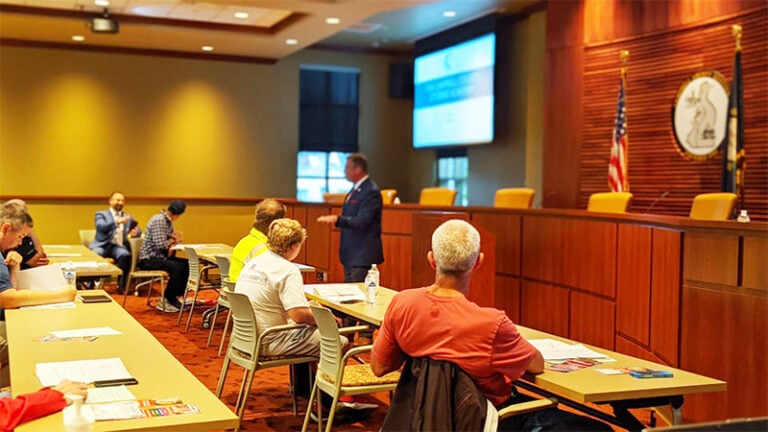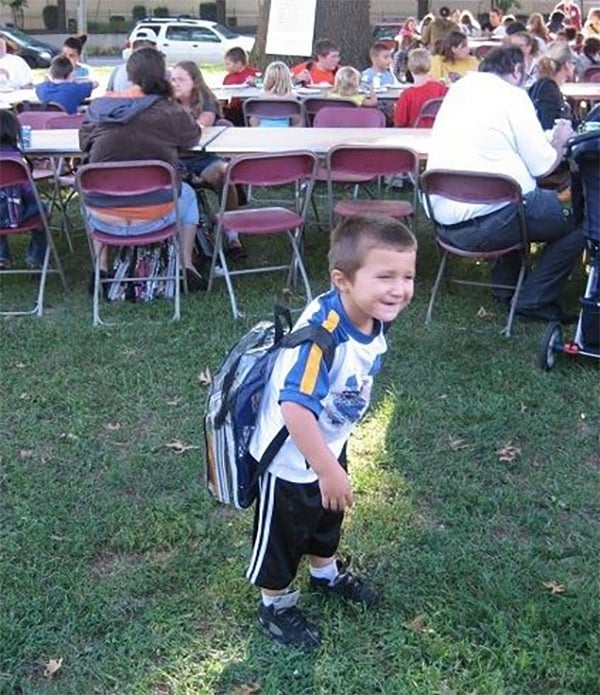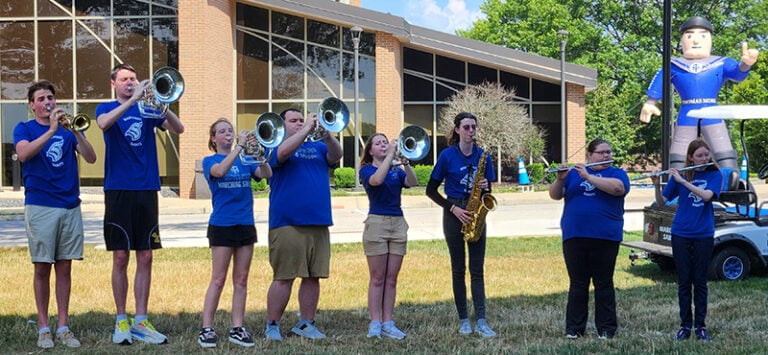By Andy Furman
NKyTribune reporter
Kyle Wallace has a love-hate relationship with his job.
“I hate that it has to exist,” he told the Covington Rotary Club meeting recently. “And I love that it does exist – to catch those who take advantage of kids.”
Kyle Wallace is Detective Kyle Wallace with the Kenton Country Police Department and the Internet Crimes Against Children Taskforce.
“The ICAC was founded in 1998,” he said, “And currently there are some 61 Taskforces throughout the United States, compiled over 5,000 Law enforcement agencies.”

With over 89,000 arrests, he pointed out.
And what they do – investigate a wide-range of internet crimes – they work together with the National Center for Missing and Exploited Children in the apprehension of these child predators.
In fact, NCMEC became the primary resource for missing children, Det. Wallace noted. “In 1998 NCMEC established the cyberviolence team to combat threats to children; and they’ve recovered more than 400,000 missing kids.”
The cybertipline is the place to report child exploitation – if one believes you or someone you know is a victim of exploitation.
“The child and family link to the cybertipline – www.cyberetipline.com – and will fill-out an online report,” Det. Wallace said. “NCMEC Call Center Specialists retrieve and prioritize each lead. Then the report is immediately reviewed and analyzed by NCMEC’s Exploited Child Unit (ECU).”
In 2023, for instance, Det. Wallace noted that 28,800 cases of missing children were reported – and one-in-six of those were likely victims of child sex trafficking.
“Some 25,306 cases have been resolved with the help of NCMEC,” he said. “About 19 percent of children who ran from child welfare last year were likely victims of sex trafficking.”
As for missing kids and Human Trafficking, Det. Wallace said 161 cases of 200 in the Commonwealth of Kentucky were resolved last year – in Ohio 1,545 of 1,749 were resolved.
So why do these kids run away?
“Understanding adverse childhood experiences as common risk factors helps identify opportunities to proactively intervene to prevent child sex trafficking,” Det. Wallace said. “We’ve organized these factors into three categories.”
• Societal and Environmental – Which would include Racism, Bullying, Lack of Resources, Gang Activity, Sexism, Involvement in child welfare for juvenile justice systems
• Family – Inter-generational sexual abuse, Lack of acceptance of gender identity or sexual orientation, Housing instability/homelessness, immigration status, adverse childhood experiences – Domestic Violence, Household substance abuse, Physical/emotional neglect or abuse, sexual abuse, families with untreated mental health issues
• Individual – History of trauma, Lack of supportive family or adult figures, low-self-esteem, Developmental or physical disability, substance misuse
When asked about how many cases-per-year occur in Kenton County, Det. Wallace was quick to tell the Northern Kentucky Tribune, “They do fluctuate; and they are with all age groups.”
His visit concluded with this:
“There is no trust more sacred than the one the world holds with children. There is no duty more important than ensuring that their rights are respected, that their welfare is protected, that their olives are free from fear and want and that they can grow up in peace.” – Kofi Annan

















